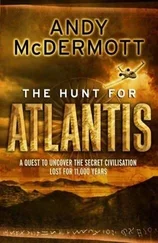" "Melekhin?" the captain asked. "It is my engine plant, and my responsibility. We do not yet know that we have a leak. The badges could still be defective or sabotaged. This could all be a vicious psychological trick played on us by the main enemy to damage our morale. Borodin will assist me. We will personally repair these and conduct a thorough inspection of all reactor systems. I am too old to have children. For the moment, I suggest that we deactivate the reactor and proceed on battery. The inspection will take us four hours at most. I also recommend that we reduce reactor watches to two hours. Agreed, Captain?" "Certainly, Comrade. I know that there is nothing you cannot repair." "Excuse me, Comrade Captain," Ivanov spoke up. "Should we report this to fleet headquarters?" "Our orders are not to break radio silence," Ramius said. "If the imperialists were able to sabotage our instruments... What if they knew our orders beforehand and are attempting to make us use the radio so they can locate us?" Borodin asked. "A possibility," Ramius replied. "First we will determine if we have a problem, then its severity. Comrades, we have a fine crew and the best officers in the fleet. We will see to our own problems, conquer them, and continue our mission. We all have a date in Cuba that I intend to meet - to hell with imperialist plots!" "Well said," Melekhin concurred. "Comrades, we will keep this secret. There is no reason to excite the crew over what may be nothing, and at most is something we can handle on our own." Ramius ended the meeting. Petrov was less sure, and Svyadov was trying very hard not to shake. He had a sweetheart at home and wanted one day to have children. The young lieutenant had been painstakingly trained to understand everything that went on in the reactor systems and to know what to do if things went awry. And it was some consolation to know that most of the solutions to reactor problems to be found in the book had been written by some of the men in this room. Even so, something that could neither be seen nor felt was invading his body, and no rational person would be happy with that. The meeting adjourned. Melekhin and Borodin went aft to the engineering stores. A michman electrician came with them to get the proper parts. He noted that they were reading from the maintenance manual for a radiation detector. When he went off duty an hour later, the whole crew knew that the reactor had been shut down yet again. The electrician conferred with his bunkmate, a missile maintenance technician. Together they discussed the reason for working on a half dozen Geiger counters and other instruments, and their conclusion was an obvious one. The submarine's bosun overheard the discussion and pondered the conclusion himself. He had been on nuclear submarines for ten years. Despite this he was not an educated man and regarded any activity in the reactor spaces as something to the left of witchcraft. It worked the ship, how he did not know, though he was certain that there was something unholy about it. Now he began to wonder if the devils he never saw inside that steel drum - were coming loose? Within two hours the entire crew knew that something was wrong and that their officers had not yet figured out a way to deal with it. The cooks bringing food forward from the galley to the crew spaces were seen to linger in the bow as long as they could. Men standing watch in the control room shifted on their feet more than usual, Ramius noted, hurrying forward at the change of watch. The USS New Jersey It took some getting used to, Commodore Zachary Eaton reflected. When his flagship was built, he was sailing boats in a bathtub. Back then the Russians were allies, but allies of convenience, who shared a common enemy instead of a common goal. Like the Chinese today, he judged. The enemy then had been the Germans and the Japanese. In his twenty-six-year career, he had been to both countries many times, and his first command, a destroyer, had been home-ported at Yokoshuka. It was a strange world. There were several nice things about his flagship. Big as she was, her movement on the ten-foot seas was just enough to remind him that he was at sea, not at a desk. Visibility was about ten miles, and somewhere out there, about eight hundred miles away, was the Russian fleet. His battleship was going to meet them just like in the old days, as if the aircraft carrier had never come along. The destroyers Caron and Stump were in sight, five miles off either bow. Further forward, the cruisers Biddle and Wainwright were doing radar picket duty. The surface action group was marking time instead of proceeding forward as he would have preferred. Off the New Jersey coast, the helicopter assault ship Tarawa and two frigates were racing to join up, bringing ten AV-8B Harrier attack fighters and fourteen ASW helicopters to supplement his air strength. This was useful, but not of critical concern to Eaton. The Saratoga's air wing was now operating out of Maine, along with a goodly collection of air force birds working hard to learn the maritime strike business. HMS Invincible was two hundred miles to his east, conducting aggressive ASW patrols, and eight hundred miles east of that force was the Kennedy, hiding under a weather front off the Azores. It slightly irked the commodore that the Brits were helping out. Since when did the U.S. Navy need help defending the American coast? Not that they didn't owe us the favor, though. The Russians had split into three groups, with the carrier Kiev easternmost to face the Kennedy's battle group. His expected responsibility was the Moskva group, with the Invincible handling the Kirov's. Data on all three was being fed to him continuously and digested by his operations staff down in flag plot. What were the Soviets up to? he wondered. He knew the story that they were searching for a lost sub, but Eaton believed that as much as if they'd explained that they had a bridge they wanted to sell. Probably, he thought, they want to demonstrate that they can trail their coats down our coast whenever they want, to show that they have a seagoing fleet and to establish a precedent for doing this again. Eaton did not like that. He did not much care for his assigned mission either. He had two tasks that were not fully compatible. Keeping an eye on their submarine activity would be difficult enough. The Saratoga's Vikings were not working his area, despite his request, and most of the Orions were working farther out, closer to the Invincible. His own ASW assets were barely adequate for local defense, much less active sub hunting. The Tarawa would change that, but also change his screening requirements. His other mission was to establish and maintain sensor contact with the Moskva group and to report at once any unusual activity to CINCLANTFLT, the commander in chief of the Atlantic Fleet. This made sense, sort of. If their surface ships did anything untoward, Eaton had the means to deal with them. It was being decided now how closely he should shadow them. The problem was whether he should be nearby or far away. Near meant twenty miles - gun range. The Moskva had ten escorts, none of which could possibly survive more than two of his sixteen-inch projectiles. At twenty miles he had the choice of using full-sized or subcaliber rounds, the latter guided to their targets by a laser designator installed atop the main director tower. Tests the previous year had determined that he could maintain a steady firing rate of one round every twenty seconds, with the laser shifting fire from one target to another until there were no more. But this would expose the New Jersey and her escorts to torpedo and missile fire from the Russian ships. Backing farther off, he could still fire sabot rounds from fifty miles, and they could be directed to the target by a laser designator aboard the battlewagon's helicopter. This would expose the chopper to surface-to-air missile fire and to Soviet helicopters suspected of having air-to-air missile capability.
Читать дальше











